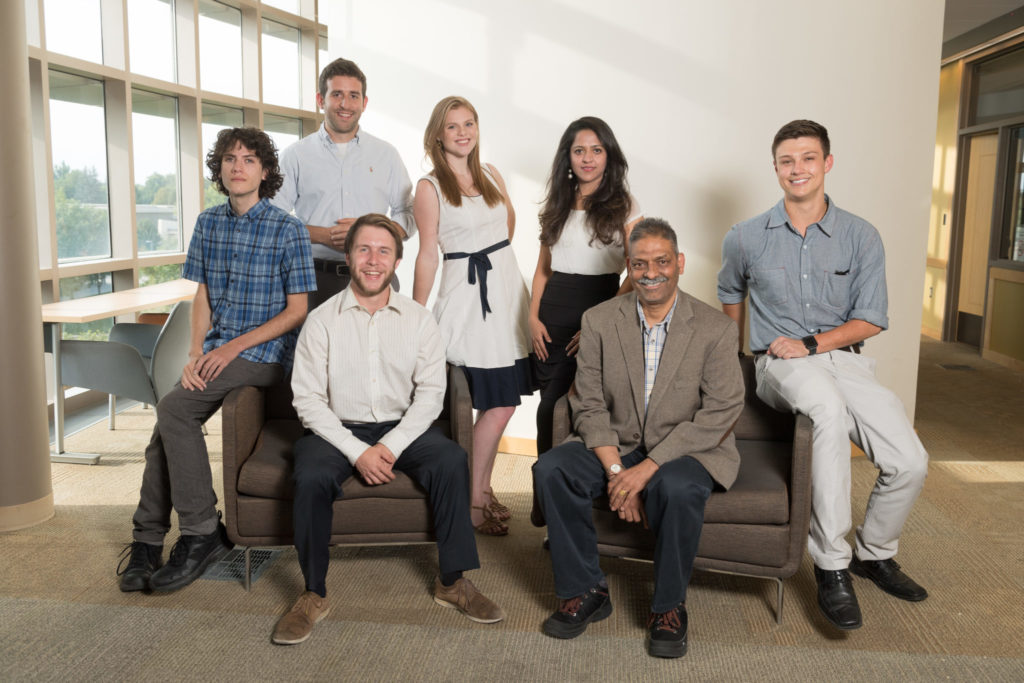 No one saw them coming. The competition was made entirely of graduate student teams, except a lone undergraduate team from Colorado State University, who brought their A-game and snatched a surprise first-place victory.
No one saw them coming. The competition was made entirely of graduate student teams, except a lone undergraduate team from Colorado State University, who brought their A-game and snatched a surprise first-place victory.
Each year, the Rocky Mountain Advanced Computing Consortium (RMACC) hosts a symposium among academic and research institutions, which includes a poster competition. At last summer’s symposium in Boulder, a team of undergraduate students from the Department of Computer Science presented the winning project on how to optimize a matrix multiplication library program.
The team, made up of students Joseph Gelfand, Susanna Kyler, Louis Narmour, Eric Palmer, and Logan Relph, was mentored by Ph.D. student Nirmal Prajapati who is advised by Professor Sanjay Rajopadhye.
Solving the problem of efficiency
Physical phenomena in science and technology can be modeled using the rectangular grids of numbers known as matrices. The multiplication of matrices is common in modeling, but the computation is expensive and time consuming if not optimized correctly. Current matrix multiplication tools deliver about 95% of a computer’s power. Sometimes the input matrices are triangular, having information in only half the grid. When this happens, the tools perform three to six times more work than needed, and computing efficiency nosedives.
How do we optimize the computation when the input matrices are triangular? The undergraduate team spent the summer exploring two optimization strategies. Their goal is to attain 30% of the computer’s power. They have already reached 10%, and in the coming months they will investigate and remove bottlenecks to help reach their target.
Collaborating to improve computing
RMACC is a collaborative of over 20 academic and research institutions throughout the intermountain states. Its goal is education, research, and implementation of high performance computing that spans institutions and disciplines. RMACC’s annual symposium includes a poster competition open to graduate and undergraduate students interested in high performance computing. Students display posters, share the results of their research projects, and present a 1-minute lightening talk to the symposium audience. Projects are judged on originality, scientific thought, thoroughness and clarity. Awards are given for 1st, 2nd, and 3rd place.
Undergraduate research
This year’s winning team members are just a few of the Computer Science Department’s talented undergraduates doing exceptional quality research and garnering national recognition. And they have some advice and encouragement for students interested in undergraduate research. “Research is a very unique process because you are doing something that you can’t just Google someone else’s answer for. You have to follow many false leads till you find the right one,” said Susanna Kyler. “The most surprising thing about undergraduate research is that you don’t need to be a huge expert in order to participate,” added Joseph Gelfand, who gave the team’s 1-minute lightning talk to the symposium crowd.
Next the winning undergrads will take their presentation on the road. The RMACC first-place award included an all-expense paid trip to attend and present their research at Supercomputing, the premier international conference in high performance computing. The conference will be held in Dallas in November.